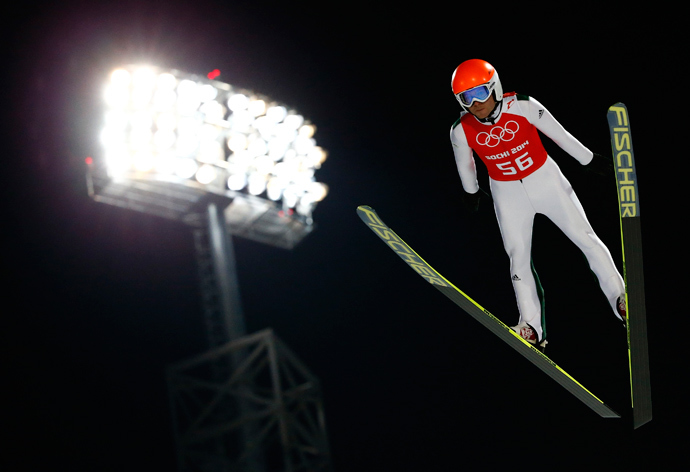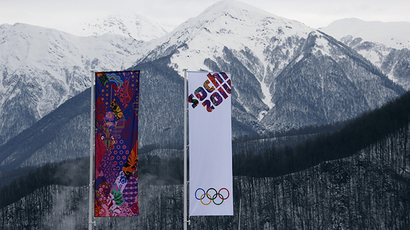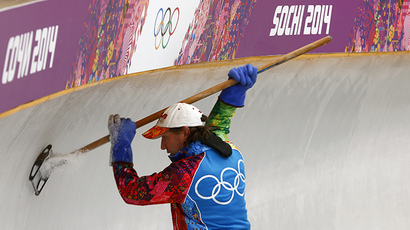2410 days of waiting: What's in store for the Winter Games?

The opening ceremony of the 22nd Winter Olympics is taking place – exactly 2,410 days after Sochi won the bid to host the Games at precisely 20:14 local time.
Blue skies and warm sunshine ahead of #Sochi2014 opening ceremony in less than 12 hours. pic.twitter.com/5guC5DvZYJ
— Paul Scott (@PaulScottRT) February 7, 2014
The Black Sea resort was selected by the International Olympic Committee (IOC) in 2007 – a charmed year for Putin-era Russia. Economic growth was at its second-highest level since the collapse of the Soviet Union and oil prices reached a 30-year peak. The worldwide financial crisis was still a year away and a million miles from the public consciousness.
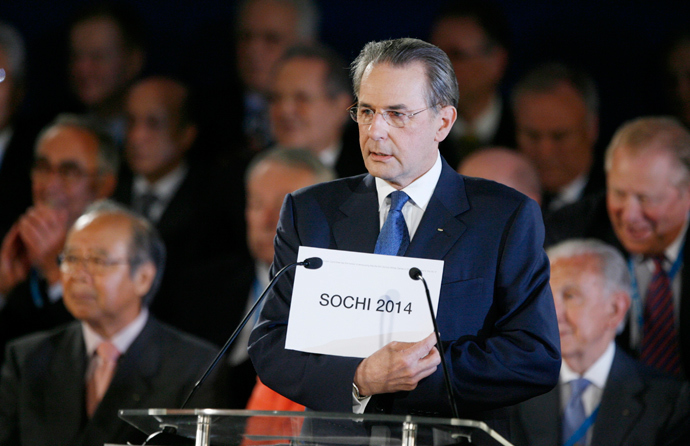
Vladimir Putin – who literally took center stage during the bid with a surprise speech to the IOC that showcased his English to the world for the first time – did not shy away from the geopolitical significance of Sochi 2014.
"This is not just a recognition of Russia's sporting achievements, but it is, beyond any doubt, a judgment on our country. It is a recognition of our growing capability, first of all economically and socially," Putin said as the Russian delegation celebrated the close victory.
That effortless ebullience was always going to be hard to maintain for seven years.
Sochi itself – a densely populated subtropical city with mediocre infrastructure – was never going to be an easy site to adapt for the Games.

For other recent hosts, a positive Olympic legacy was stadiums that would not stand empty after the last paying spectators filed out, the revitalization of a small part of a metropolis, or simply a bill that would not cripple the host town for decades.

Sochi was to be rebuilt from a bustling but creaky and provincial resort to a world-class tourism capital.
Some locals have objected to seeing their hometown turned into a building site, and other Russians have balked at the bill for the Games, which totaled over $6 billion spent on the Olympic facilities and almost $40 billion spent on the development of the Krasnodar region, where the games took place.
Three hundred and sixty-three pieces of infrastructure have been constructed especially for the Olympics.
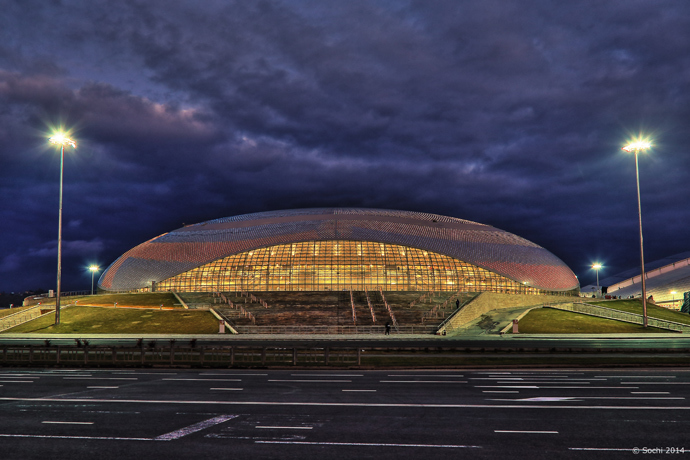
But now, the brand new facilities – designed by the world’s top architects – glitter in the snow. Whether they are enough to attract millions of tourists to Sochi in the future will become apparent only years after the Games have finished.
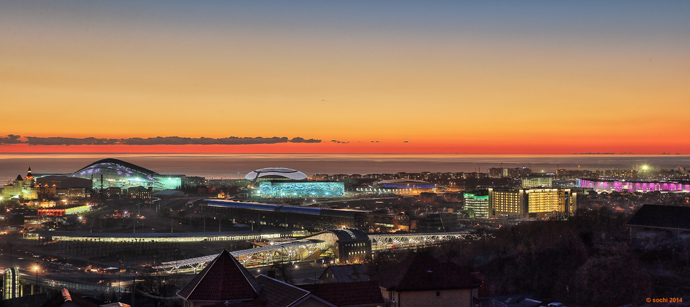
Through their lengthy preparations, major sports events always accrue a debt in the public perception. The preparations for the last Olympics in London were overshadowed by endless concerns over security, traffic, and rising costs, along with a transformable stadium that cost more than a permanent structure.
Yet once the first athlete took off their tracksuit, the credit was repaid, and handsomely so in the end, as a communal spirit and world-record performances captured the headlines.
Sochi has already provided the first spectacle with a record-breaking 65,000km Olympic torch relay that provided real insight into Russia. It has been hosted by 135 cities located in all of Russia’s 83 regions and republics. The longest nonstop leg of the relay spanned 2,055km, between the cities of Norilsk and Yakutsk in the Russian Far East.
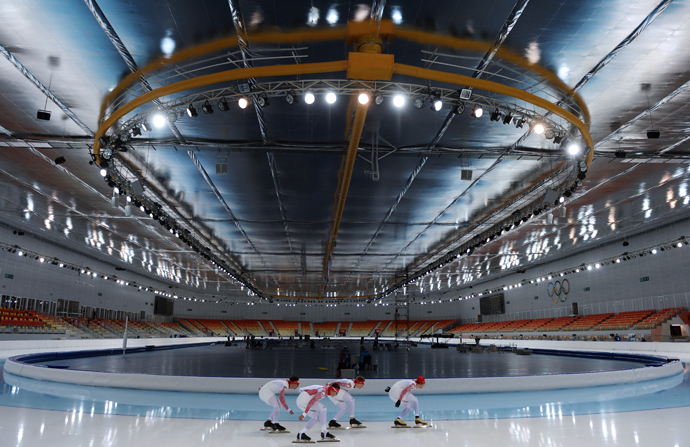
What are the facilities like?
The Sochi Games will take place on two separate sites.
Down by the palm tree-dotted coast is the main cluster of indoor facilities and the Olympic village itself. Temperatures here rarely fall below freezing, and indeed Sochi is the warmest city to ever host the Winter Games.
The centerpiece is the 40,000 capacity Fisht Stadium – named after a local mountain – which will host the opening and closing ceremonies. Designed by Populous architectural firm, which rebuilt the stadium that hosted the last World Cup Final in Johannesburg, Fisht stadium will be expanded to host matches during the 2018 World Cup.
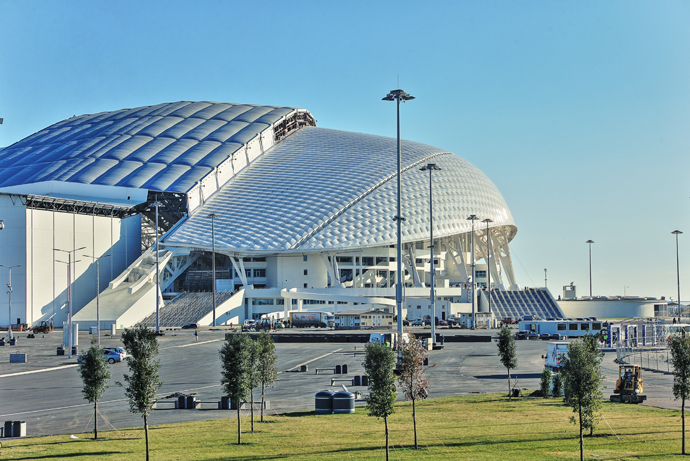
The site itself will also be used after the Games, and will host Russia’s first ever Formula 1 race next year.
The Bolshoi Ice Dome along with the Shayba Arena will host ice hockey events.
The outdoor facilities are at Krasnaya Polyana, located 48km from the Coastal Cluster about 500 meters above sea level. At the moment, there is snow at the facilities – but just in case, there are 500 snow cannons on standby, ready to release 25 million cubic feet of snow saved up from previous winters.
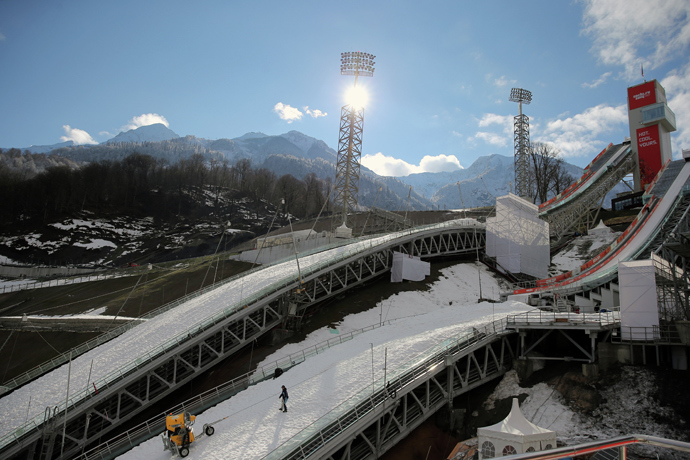
The brand-new 1,814-meter-long Sanki Sliding Center track becomes the longest-ever in the world for bobsleigh, luge and skeleton. It was designed specifically to host international tournaments and was constructed in just two years.
Sanki’s statistics are impressive: 17 turns for men and 16 for women and pairs. The bobs will flash past with a maximum speed of around 135km per hour. The highest point is located at 836 meters above sea level and its lowest point at 704 meters.
How do Russians feel about the Games?
Many Russians feel pride over hosting the Games. A survey by Russia's independent Levada polling center showed that the majority of Russians believe a strong performance by athletes would increase the country’s international image.
Russian public opinion is still split in its judgment of the country’s performance at the London Olympics in 2012. Russia finished fourth in the official medal standings – behind the USA, China, and Great Britain.

Many have better hopes for the Winter Games, with 43 percent of respondents believing that Russia will finish in the top three countries. The majority of those surveyed specified that the most important thing is watching their own athletes do well.
Despite many of those surveyed expressing worries over corruption allegations, 38 percent of respondents said they believe Russia’s choice to host the Winter Olympics in Sochi was the right move for the country.
What about the actual competition?
Sochi has opened its doors to 6,700 athletes who will be staying in the Mountain Olympic Village, Coastal Cluster, and Endurance Village. All the housing areas are located within a few minutes’ walk from the competition venues.
The US Olympic team will provide the biggest presence, with 233 athletes in all, while only one entrant each will represent the Islands of Bermuda, Venezuela, British Virgin Islands, East Timor and Zimbabwe.
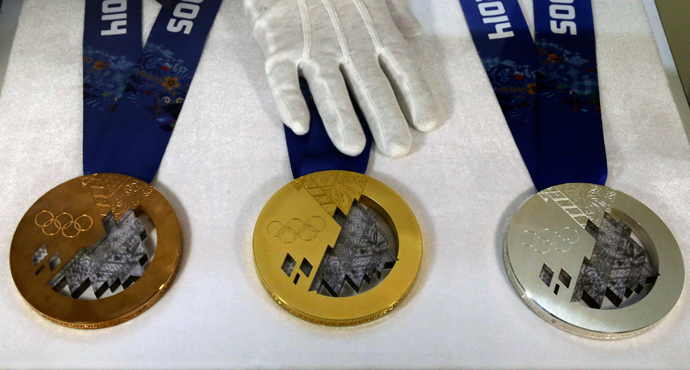
PricewaterhouseCoopers (PwC) in France published that it projects Russia to achieve third place overall. It estimates that the US will come in first with 35 medals, Germany second with 26 medals, and Russia third with 25 medals.
The Associated Press has predicted that Russia will come in fourth with 10 gold medals. It expects Norway to grab more gold medals than any other team at the Sochi Games. The news agency estimated that good performances in the biathlon, alpine skiing, and cross-country skiing - among other events - will allow the Norwegians to come away with 17 Olympic gold medals.
AP predicts that the US will achieve second place in the overall standings with 14 gold medals, and the Canadians will finish third with 13 golds. It has forecasted that Russia will come in fourth place.
Another projection places Russia in sixth place with seven gold medals, according to AIF newspaper.
The year 2014 marks 90 years of Winter Olympics, with twelve new sporting events making their debuts, providing athletes with fresh ways to compete for the gold. New competitions in figure skating, extreme sports, and biathlon events are set to take place.


